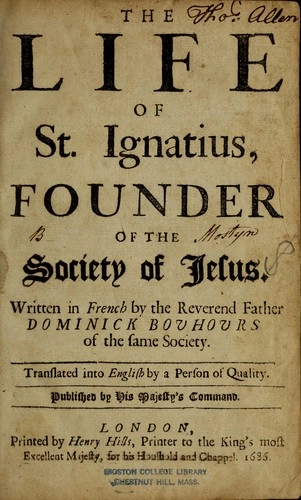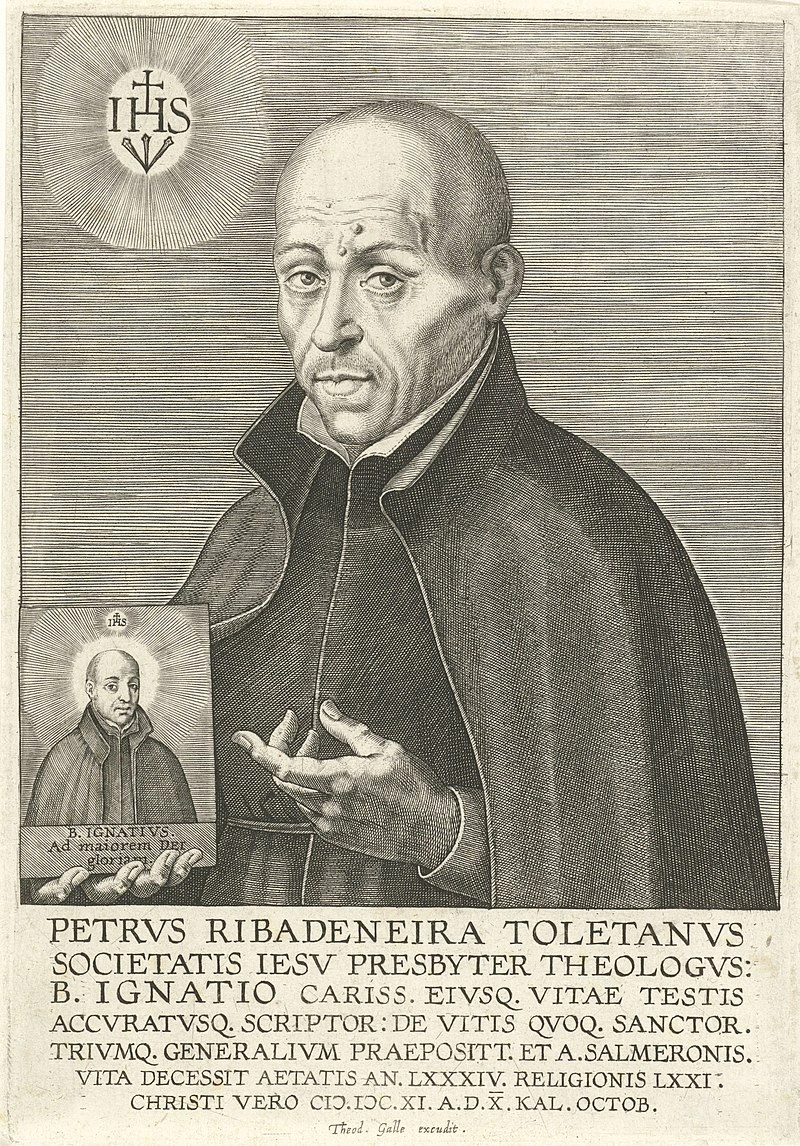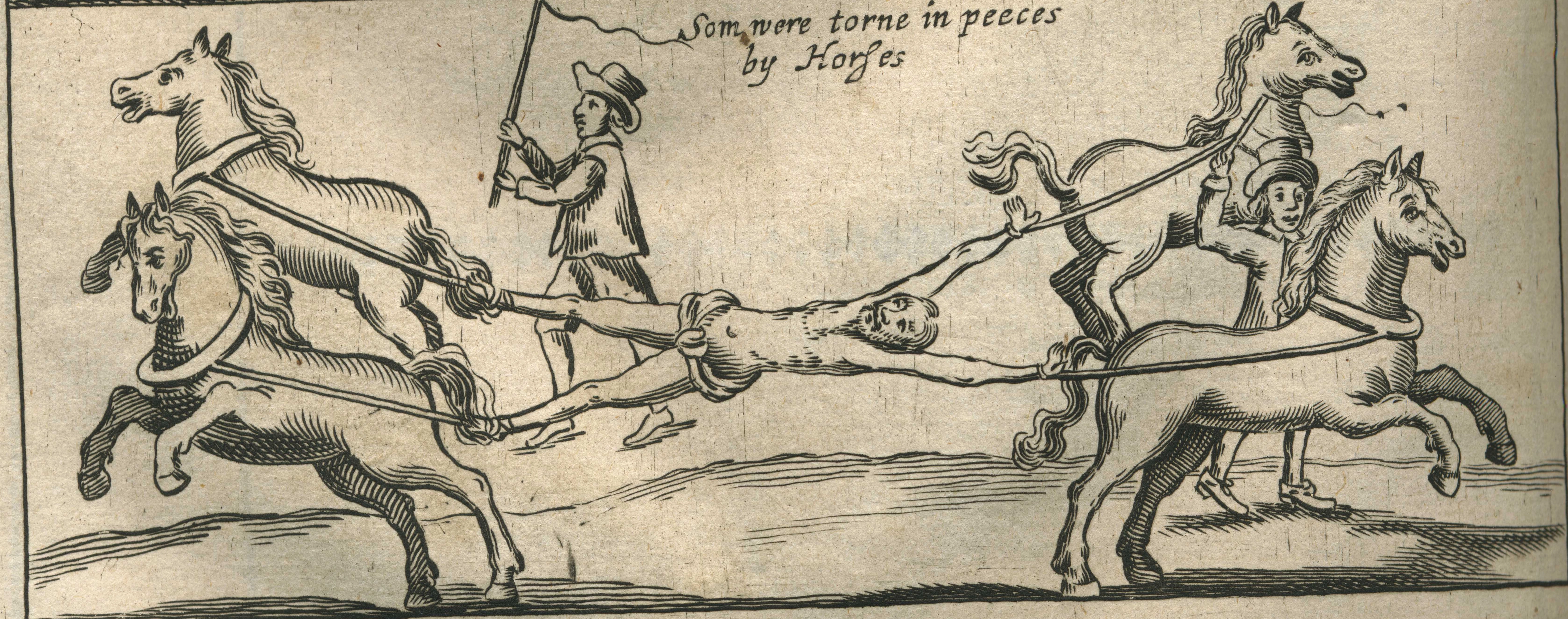
Dominique Bouhours (The Life of St. Ignatius, London, 1686, pp. 64–5) recounts how Ignatius, wandering between the French and Spanish armies, is suspected of being a spy and apprehended by some Spanish soldiers:
They stript him, and carried him in his shirt to their Captain. The Remembrance of Jesus Christ, expos’d naked to the Eyes of the Jews, fortify’d Ignatius in an exigence of so great Humiliation: But the fear of being tortur’d did a little terrifie him.
This is a curious little tale. Ignatius whips himself daily, and his
desires for self-abasement are so great that (according to an early
biography) he would ‘beseech our Lord, that his body after his death
might be cast vpon a dunghill, that it might be eaten by foules, and
dogges’. He even confesses to the impulse to ‘goe vp and downe the
streets naked, and al bemyred, that he might be accounted a foole’
(Pedro de Ribadeneira, The Life of B. Father Ignatius of Loyola,
Authour, and Founder of the Society of Iesus, Saint Omer, 1616, p.
139). He is even content to be stripped and abused, both physically and verbally, by a group of soldiers. And yet, faced with the prospect of being subjected to torture at the hands of professionals, he is
terrified.
In the event, the captain takes Ignatius for a fool and dismisses him,
upbraiding the soldiers for bothering him, whereupon ‘the soldiers,
before they parted with him, us’d him very roughly, both in words and blows.’ At this, we are told, ‘The joy which Ignatius had, in being us’d in the Camp of the Spaniards, much after the same rate of Jesus Christ his usage, in the Court of Herod, hindred him almost from feeling the rude treatment of the Souldiers.’
Protestant controversialists, of course, had a field day with accounts
like this, which, as far as they were concerned, had no place in
religious discourse and were nothing other than the Catholics
proclaiming their insanity out of their own mouths. Edward Stillingfleet (apparently commenting on Nicolaus Orlandinus’s Latin account of this episode), comments drily that Ignatius ‘might have saved himself the labour of whipping himself that day’ (A Discourse Concerning the Idolatry Practised in the Church of Rome, London, 1671, pp. 313–14), and Wharton mocks him as one who would ‘counterfeit the Fool and Ideot, that he might be beaten the more severely’ (Henry Wharton, The Enthusiasm of the Church of Rome, London, 1688, p. 94).
To the Protestant Englishman, Ignatius springs from the same stock as the heroic Amadis, the parodic Quixote, even the picaresque anti-hero Guzman de Alfarache, with the caveat that, while they were all mere fictions, Ignatius actually walked the earth, embodying his fantasies in the establishment of the Society of Jesus, whose members, in turn, continued to spread the insane beliefs of their founder.
(Adapted from Part 1, “The Suffering Self”, Chapter 2, “Suffering and Sexuality in Catholic Hagiography”.)




Comments